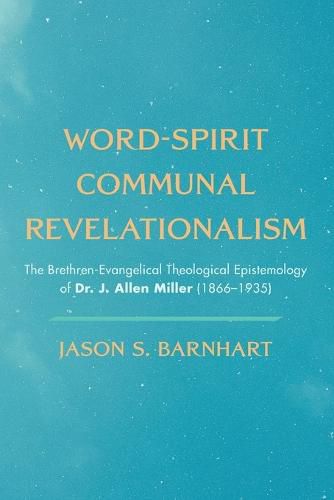Readings Newsletter
Become a Readings Member to make your shopping experience even easier.
Sign in or sign up for free!
You’re not far away from qualifying for FREE standard shipping within Australia
You’ve qualified for FREE standard shipping within Australia
The cart is loading…






This title is printed to order. This book may have been self-published. If so, we cannot guarantee the quality of the content. In the main most books will have gone through the editing process however some may not. We therefore suggest that you be aware of this before ordering this book. If in doubt check either the author or publisher’s details as we are unable to accept any returns unless they are faulty. Please contact us if you have any questions.
This work first examines the theological streams of influence that constitute Brethren theology--Anabaptism and Radical Pietism--with particular focus given to key thinkers and leaders. It then explores the nuances of what came to be American Fundamentalism and Protestant Liberalism of the late nineteenth and early twentieth centuries, which provide important context to the thought of J. Allen Miller (1866-1935), a central Ashland Brethren theologian of that period. Miller's theology demonstrates sympathy with both poles of the theological spectrum but remains distinct as a thoughtful mediation between these two extremes. Miller's theological approach, termed "Word-Spirit Communal Revelationalism," consists in his particular theological epistemology and biblical hermeneutics. When Miller's theological witness moves into conversation with American evangelicalism, it proves helpful for the Ashland Brethren as they engage with the contemporary American evangelical landscape. His witness assists Brethren and other American evangelicals in offering a corrective to several pathologies or distortions identified within American evangelicalism. His theological method assists the larger American evangelical movement with tools for mediation over against polarization.
$9.00 standard shipping within Australia
FREE standard shipping within Australia for orders over $100.00
Express & International shipping calculated at checkout
Stock availability can be subject to change without notice. We recommend calling the shop or contacting our online team to check availability of low stock items. Please see our Shopping Online page for more details.
This title is printed to order. This book may have been self-published. If so, we cannot guarantee the quality of the content. In the main most books will have gone through the editing process however some may not. We therefore suggest that you be aware of this before ordering this book. If in doubt check either the author or publisher’s details as we are unable to accept any returns unless they are faulty. Please contact us if you have any questions.
This work first examines the theological streams of influence that constitute Brethren theology--Anabaptism and Radical Pietism--with particular focus given to key thinkers and leaders. It then explores the nuances of what came to be American Fundamentalism and Protestant Liberalism of the late nineteenth and early twentieth centuries, which provide important context to the thought of J. Allen Miller (1866-1935), a central Ashland Brethren theologian of that period. Miller's theology demonstrates sympathy with both poles of the theological spectrum but remains distinct as a thoughtful mediation between these two extremes. Miller's theological approach, termed "Word-Spirit Communal Revelationalism," consists in his particular theological epistemology and biblical hermeneutics. When Miller's theological witness moves into conversation with American evangelicalism, it proves helpful for the Ashland Brethren as they engage with the contemporary American evangelical landscape. His witness assists Brethren and other American evangelicals in offering a corrective to several pathologies or distortions identified within American evangelicalism. His theological method assists the larger American evangelical movement with tools for mediation over against polarization.